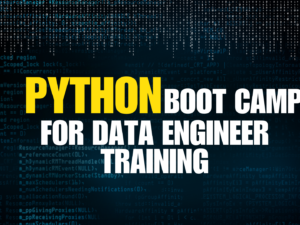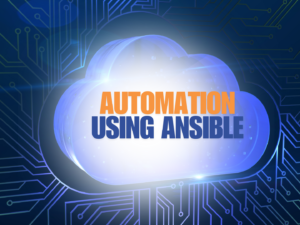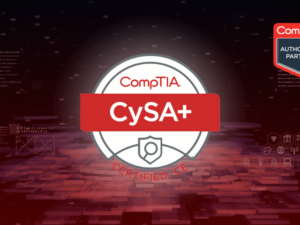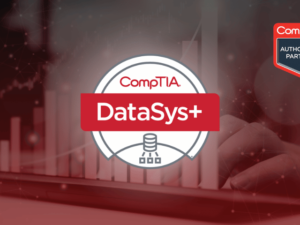ADOBE EXPERIENCE MANAGER DEVELOPER TRAINING
- Description
- Reviews
COURSE DESCRIPTION
Adobe Experience Manager Developer (AEM) serves the purpose of creating and maintaining digital customer experiences across distinct channels. Adobe Experience Manager Developer (AEM) is a comprehensive content management solution for building websites and all of their complementary applications which include mobile applications, paperless forms, and online communities. AEM is a content management solution that helps professionals keep track of their content.
DURATION
5 Days
PREREQUISITES
It is recommended that the trainee should have basic knowledge of:
• HTML
• CSS/Bootstrap/Responsive Design
• JavaScript
• Servlets Basics
TARGET AUDIENCE
This is one of the most valued and respected professional requirements for professionals who work in creating and making the content look effective and engaging across all industries. This professional certification course is also best suited for:
• Java Developers
• Administrators
• Designer Specialist
• Web Developers
• Application Development Specialist
• Administrative Training
• Document Output Specialist
COURSE OBJECTIVES
After the completion of this course, Trainee will:
• Insights on OSGi Framework, JCR/OAK, REST, and Apache Sling Technologies
• Gain knowledge on the Product and Platform architectures
• Understand Creating and Managing Templates and associated page-rendering Components
• Learn Installing and utilizing CRXDE and CRXDE Lite
• Gain knowledge on creating, adding, and managing Components
• Taking input from Authors using Component and Design Dialogs
• Learn how to define and assign a Design to a website.
• Gain knowledge on how to create a custom Widget and CQ package
• Learn how to define Workflows
COURSE OUTLINE
Unit 1: AEM – An Overview
• CXM Overview
• The Adobe Experience Cloud for Customer Experience Management
• History of AEM
• Installation and Setup
• AEM Consoles
• Basics of different run modes.
• Assets/DAM
Unit 2: Architecture and Concepts
• Web Application Technologies and CMS
• Basic concepts and Terminologies
• Understanding the AEM Architecture
• Dispatcher
Unit 3: Authoring
• Working with Author Environment
• Working with Touch UI and Classic UI
Unit 4: Templates and Components
• CRXDE basics
• CRXDE Folder Structure
• Static and Editable Templates
• Parsys, iParsys
• How to create Components, Design Mode
• Responsive Grid
• Core Vs Foundation Components
• Create Template and Thumbnail.
• Create content page Component
• Create a webpage with custom components using core components and modifying them using Overlay and Override
Unit 5: Dialog and cqDialog
• Dialog: Configure a component
• Framework and UI
• Coral UI and Granite UI
Unit 6: ClientLibs
• ClientLibs in AEM
• Properties and Debugging ClientLibs
• Creating ClientLibs for a webpage
Unit 7: Sightly – A Template Language
• HTL – An Introduction
• HTL Java- Use API
• Sling Model API
• HTL Javascript – Use API
• Create a webpage with custom components
o Rich Text Field with all features including a color picker
o Image component which allows to drag and drop from the DAM or browse from the file system
o Multifield component (Single level and multi-level)
• Create a navigation menu using sling model
Unit 8: OSGi Concepts
• Create AEM Project in Eclipse
• Validate Bundle in OSGi
• OSGi Architecture and concepts
• Manage maven dependencies.
• Implementing OSGi configuration
Unit 9: Troubleshooting AEM Projects
• Create custom log files by using the Web console
• Configure and manage AEM log levels for specific AEM environments
• Troubleshoot caching issues related to the Dispatcher and browsers
• Troubleshoot AEM configurations
Unit 10: Workflow and CUGs
• Basics of the AEM Workflow Model
• How to create a Workflow Model in AEM
• How to add, edit, start and test Workflow Model in AEM
• Assign an existing workflow to a page for activation
Unit 11: Dispatcher
• Configure Dispatcher
• Configure rewrite rules
Unit 12: AEM Additional Features
• Security (User, Group, Permission management)
• Replication
• Package Manager – Create and install Package
• Content Fragments
• Experience Fragments
• Personalization
• Communities
• Cloud Service
• Package Share
For FULL COURSE OUTLINE, please contact us. Please contact us for the schedules and for booking a private class.
Request a Quote
Popular Courses
Archive
Working hours
| Monday | 9:00 am - 6.00 pm |
| Tuesday | 9:00 am - 6.00 pm |
| Wednesday | 9:00 am - 6.00 pm |
| Thursday | 9:00 am - 6.00 pm |
| Friday | 9:00 am - 6.00 pm |
| Saturday | Closed |
| Sunday | Closed |










